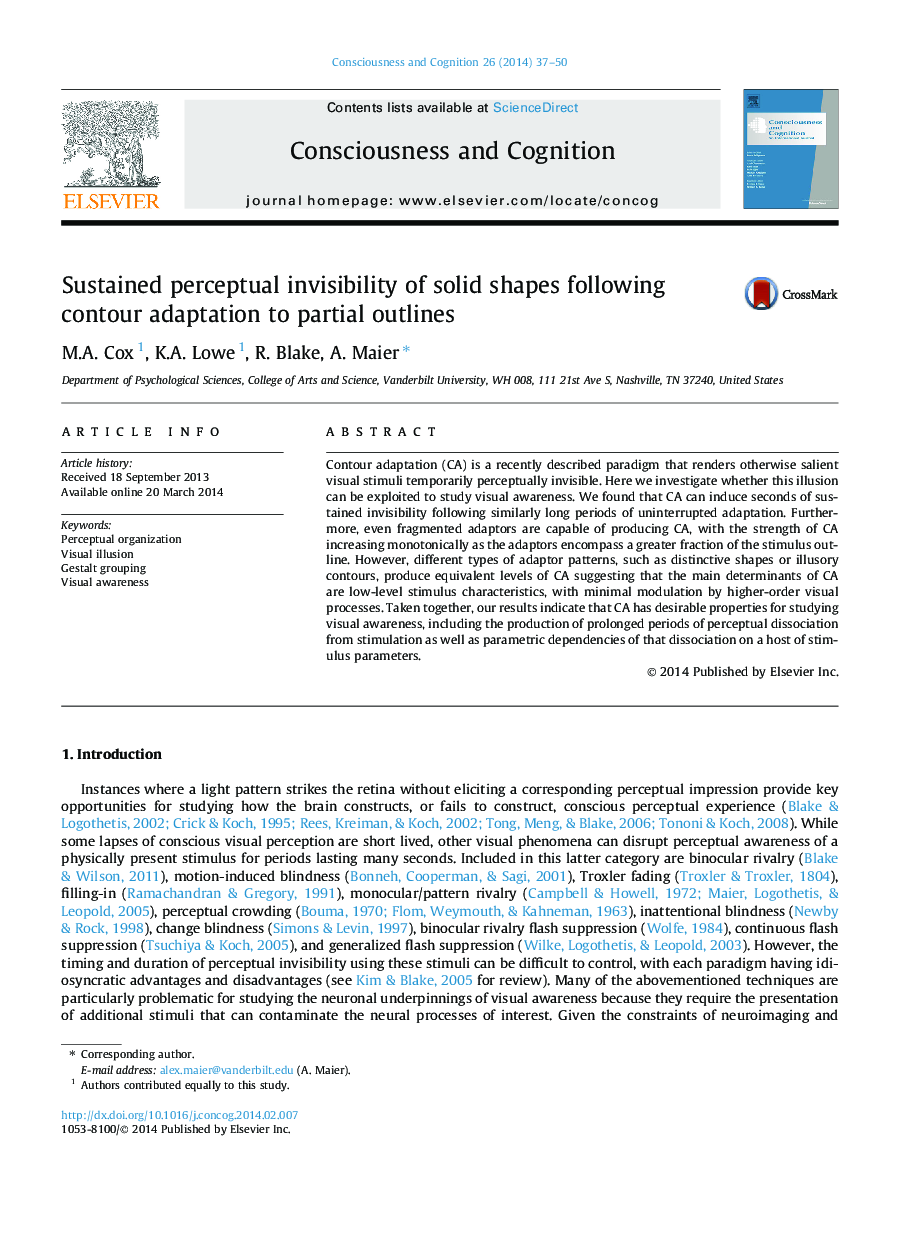| Article ID | Journal | Published Year | Pages | File Type |
|---|---|---|---|---|
| 7290113 | Consciousness and Cognition | 2014 | 14 Pages |
Abstract
Contour adaptation (CA) is a recently described paradigm that renders otherwise salient visual stimuli temporarily perceptually invisible. Here we investigate whether this illusion can be exploited to study visual awareness. We found that CA can induce seconds of sustained invisibility following similarly long periods of uninterrupted adaptation. Furthermore, even fragmented adaptors are capable of producing CA, with the strength of CA increasing monotonically as the adaptors encompass a greater fraction of the stimulus outline. However, different types of adaptor patterns, such as distinctive shapes or illusory contours, produce equivalent levels of CA suggesting that the main determinants of CA are low-level stimulus characteristics, with minimal modulation by higher-order visual processes. Taken together, our results indicate that CA has desirable properties for studying visual awareness, including the production of prolonged periods of perceptual dissociation from stimulation as well as parametric dependencies of that dissociation on a host of stimulus parameters.
Related Topics
Life Sciences
Neuroscience
Cognitive Neuroscience
Authors
M.A. Cox, K.A. Lowe, R. Blake, A. Maier,
